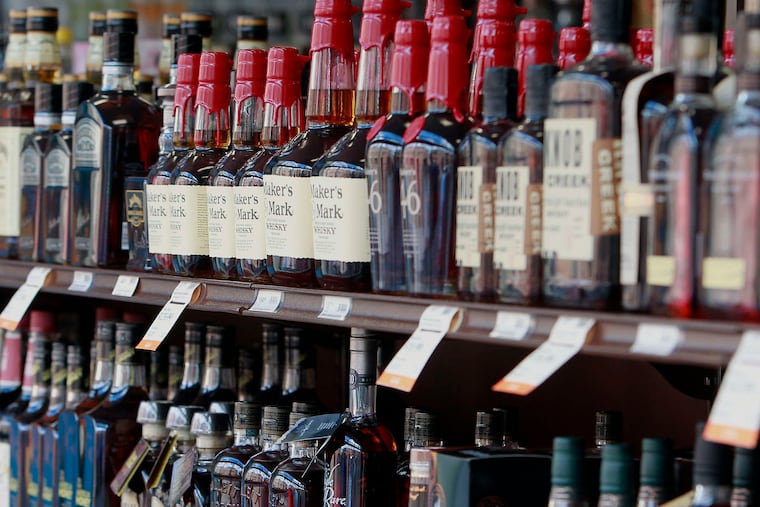Windfall? How Fine Wine & Good Spirits paid Harrisburg $85 million more from alcohol sales
“We were transferring anywhere between $80 and $100 million [to the state], and now we’re transferring $185 million" - Philadelphia Liquor Control Board, which manages the state stores recently told lawmakers.

Three years ago, Pennsylvania lawmakers allowed the Liquor Control Board to negotiate lower prices from suppliers and then decide on its own whether to pass any savings on to consumers.
The impact has been substantial, at least for the state.
“You can see it in our revenue transfer. We were transferring anywhere between $80 and $100 million, and now we’re transferring $185 million,” Tim Holden, the board’s chairman, told lawmakers Monday at a joint hearing on the pricing regimen before the House Liquor Control and the Senate Law and Justice Committees.
Holden was referring to the state monopoly’s annual contribution to Pennsylvania’s general fund. In a sign of confidence that higher profits are here to stay — as long as the agency that manages Fine Wine & Good Spirits stores keeps its new pricing power — Holden has already told Gov. Tom Wolf to count on $185 million for next year’s budget.
The so-called flexible pricing system was passed in the summer of 2016 as a part of a package that also brought wine sales to supermarkets.
What’s not entirely clear is how much of that extra money is coming out of the pockets of wine and spirits companies and how much from consumers, most of whom are also taxpayers.
Dale Horst, the board’s director of marketing and merchandising, told legislators that in 2018 the prices it paid suppliers increased on 455 items and decreased on 307. The agency in turn increased retail prices on 570 items and decreased them on 167.
Asked to explain the relatively small number of retail price decreases, Horst said the agency works with suppliers on ways to improve its profit margins.
“Maybe we weren’t making the same margin on that as on one of their competitor’s products," he said. "In calling that to their attention, they agreed to lower the cost, but yet the retail price was where it should be compared to the competitor’s product.”
Rep. Jesse Topper, a Republican whose district covers parts of Bedford, Franklin, and Fulton Counties, was among the few legislators on Monday to express skepticism about flexible pricing. Topper recently introduced a bill that would force the LCB to go back to the old pricing system, under which it tacked a 30 percent markup on whatever price the supplier agreed to.
“Since the PLCB is neither constrained by market discipline nor antitrust laws, my legislation will simply repeal the flexible pricing provision in statute in order to reinstitute some kind of consumer protection for the PLCB,” Topper said in his memorandum introducing the bill. “As legislators, I believe we owe our constituents the protection that proportional pricing gave them.”
Under the so-called proportional-pricing system, the state had no reason to negotiate with suppliers, because if it got a lower price, its gross profit would automatically be lower because of the fixed markup.
That meant all the pricing power was in the hands of wine and spirits manufacturers, though they faced competition among themselves and had to contend with the ability of consumers to see what their products cost in states with a freer market for alcoholic beverages.
Pennsylvania Liquor Control Board was created in 1933, at the end of Prohibition, to manage the sale of alcoholic beverages. It runs at least 600 Fine Wine & Good Spirits stores across the state.
Industry representatives at Monday’s hearing praised Topper’s plan to get rid of flexible pricing, arguing that the PLCB’s monopoly power means it should not be able to negotiate in the same way private wholesalers do in other states, where wineries can switch wholesalers if they are unhappy.
Under the old system in Pennsylvania, competitors could monitor each other because they all knew what the markup was, Terri Cofer Beirne, Eastern counsel for the Wine Institute, a San Francisco trade group for California wineries, said at Monday’s hearing.
“This was a really effective system of commercial checks and balances that ensured that PLCB wasn’t picking winners and losers,” she said.